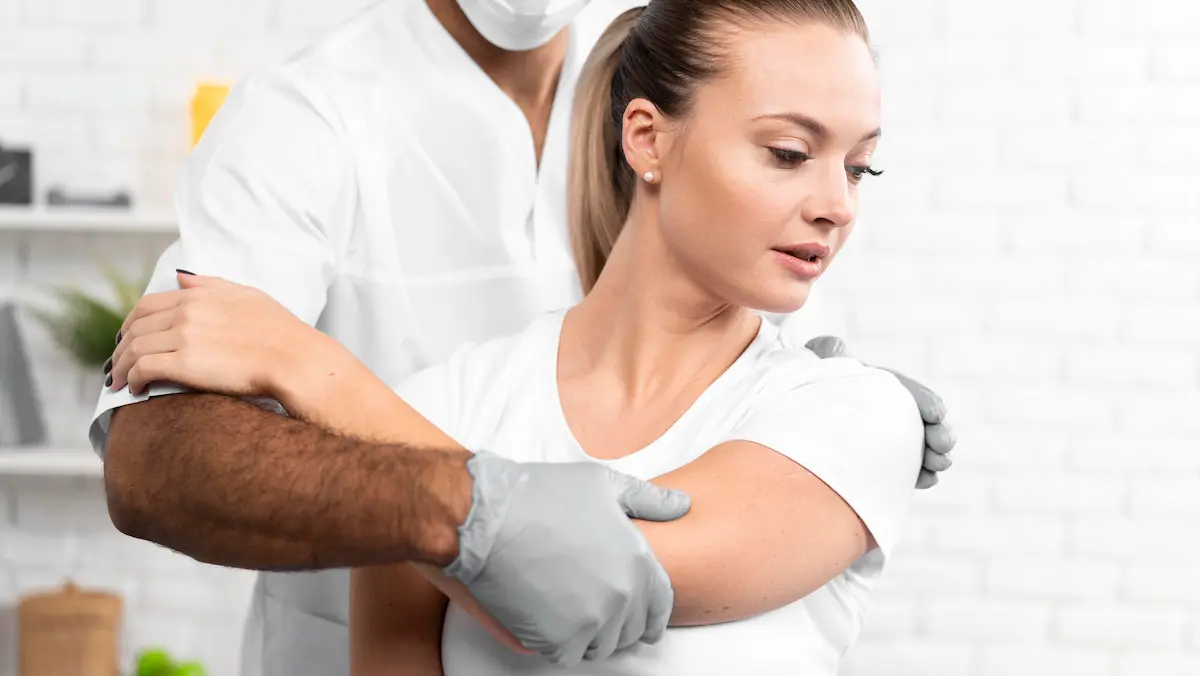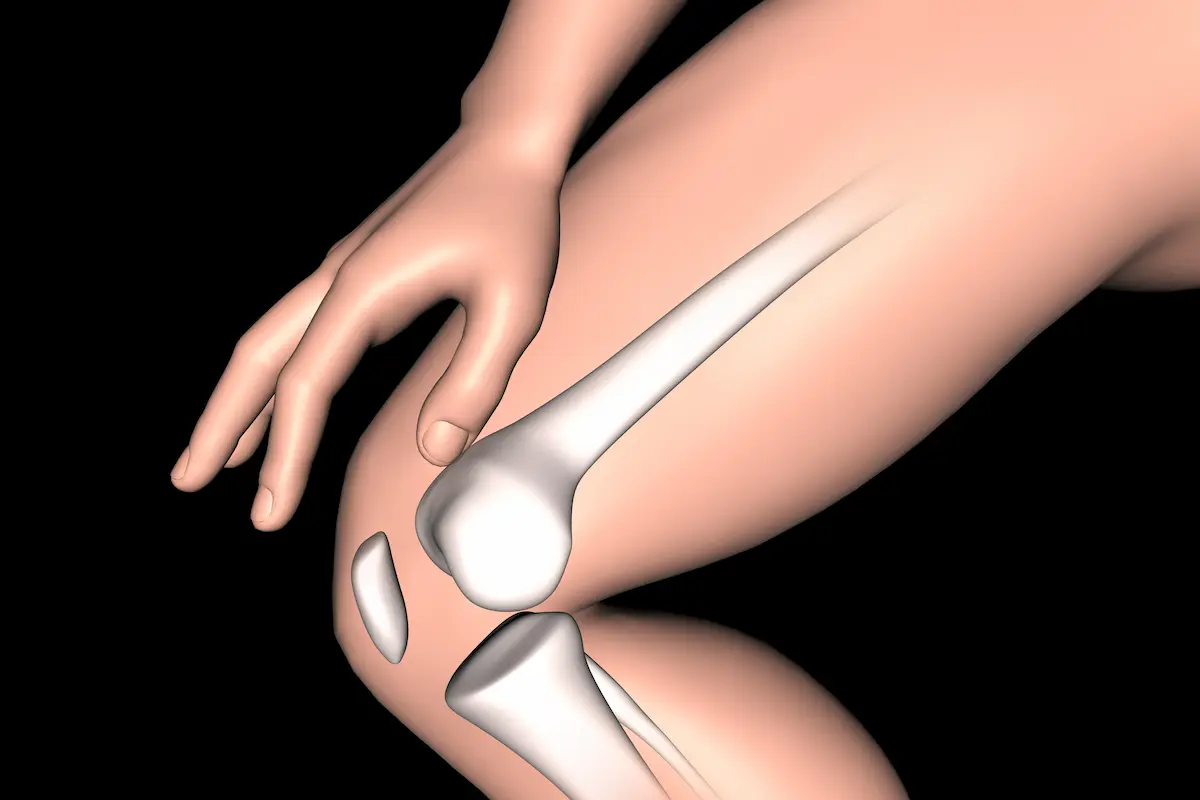The shoulder joint tend to be one of the most mobile joints of the human body. It allows for a wide range of movement and is responsible for the rotation and movement of the arm. The shoulder joint is a complex structure that consists of bones, muscles, tendons, and ligaments. The shoulder joint allows for a wide range of movements, including:


The shoulder joint is formed by the articulation of three bones:
Humerus: This is the long bone in the upper arm that extends from the shoulder to the elbow.
Scapula: This is the flat bone located in the upper back, which forms the back part of the shoulder blade.
Clavicle: This is the S-shaped bone that connects the scapula to the sternum (breastbone) and forms the front part of the shoulder.
Muscles of the Shoulder Joint:
The shoulder joint is surrounded by several muscles that allow for its movement. The major muscles of the shoulder joint include:
Deltoid: This is the large muscle that covers the shoulder and allows for arm abduction (lifting the arm away from the body).
Rotator cuff muscles: These are four muscles (supraspinatus, infraspinatus, teres minor, and subscapularis) that originate from the scapula and attach to the humerus. These muscles help to stabilize the shoulder joint and allow for rotation of the arm.
Biceps brachii: This muscle originates from the shoulder blade and attaches to the radius bone in the forearm. It allows for arm flexion (bending the arm at the elbow).
Tendons and Ligaments of the Shoulder Joint:
Tendons and ligaments are fibrous tissues that connect bones to muscles and bones to bones, respectively. The shoulder joint has several important tendons and ligaments, including:
Rotator cuff tendons: These are the tendons that attach the rotator cuff muscles to the humerus.
Biceps tendon: This is the tendon that attaches the biceps muscle to the radius bone in the forearm.
Glenohumeral ligaments: These are the ligaments that connect the humerus to the scapula and provide stability to the shoulder joint.
Acromioclavicular (AC) joint: This is the joint between the acromion process (a bony projection of the scapula) and the clavicle. It is held together by the AC ligament and coracoclavicular (CC) ligament.
If you are experiencing shoulder pain or discomfort, it is important to seek medical attention. While some minor shoulder injuries can be treated with rest and home remedies, more severe or persistent conditions may require the care of an orthopaedic surgeon.Some signs that you may need to see an orthopaedic surgeon for your shoulder condition include:
Persistent pain: If you have been experiencing shoulder pain for an extended period of time and it is not responding to rest, ice, and over-the-counter pain medication, it may be time to see an orthopaedic surgeon.
Limited mobility: If you are experiencing difficulty moving your shoulder or have limited range of motion, this could be a sign of a more serious shoulder problem that requires medical attention.
Swelling or inflammation: If you are experiencing swelling or inflammation in your shoulder, this could be a sign of an injury or a more serious condition such as arthritis.
Numbness or tingling: If you are experiencing numbness or tingling in your shoulder or arm, this could be a sign of nerve damage or impingement and should be evaluated by a medical professional.
Shoulder instability: If you are experiencing shoulder instability or dislocation, this could be a sign of a more serious shoulder condition that requires medical attention.
It is important to note that not all shoulder ailments require surgery. In some cases, non-surgical treatments such as physical therapy, medication, or injections may be recommended. However, if surgery is required, our orthopaedic surgeon who specializes in shoulder ailments can provide a comprehensive evaluation and develop a personalized treatment plan based on your specific needs.


Shoulder surgery may be required when conservative treatments such as physical therapy, medication, or injections have failed to alleviate the symptoms of a shoulder condition. Some common reasons why shoulder surgery may be necessary include:
Rotator cuff tear: If you have a large or symptomatic rotator cuff tear that is not healing with non-surgical treatments, surgery may be required to repair the torn tendon.
Shoulder impingement syndrome: If you have persistent shoulder pain or limited mobility due to shoulder impingement syndrome, surgery may be required to remove the bone or tissue that is causing the impingement.
Frozen shoulder: If you have a frozen shoulder that is not responding to non-surgical treatments, surgery may be required to release the tight capsule and restore range of motion.
Shoulder instability: If you have recurrent shoulder dislocations or instability, surgery may be required to repair or tighten the damaged ligaments or tendons that are causing the instability.
Arthritis: If you have severe arthritis in the shoulder joint that is causing pain and limited mobility, surgery may be required to replace the damaged joint with an artificial joint.
It is important to note that not all shoulder conditions require surgery, and surgery should only be considered after a thorough evaluation and discussion with our qualified orthopaedic surgeon. Your surgeon will evaluate your specific condition and recommend the best course of treatment for your individual needs. They will also discuss the risks and benefits of surgery, as well as what to expect during the recovery process.
New No. 85, Royapettah High Road, Royapettah, Chennai – 600014
© Designed and Developed By cloudstar.digital